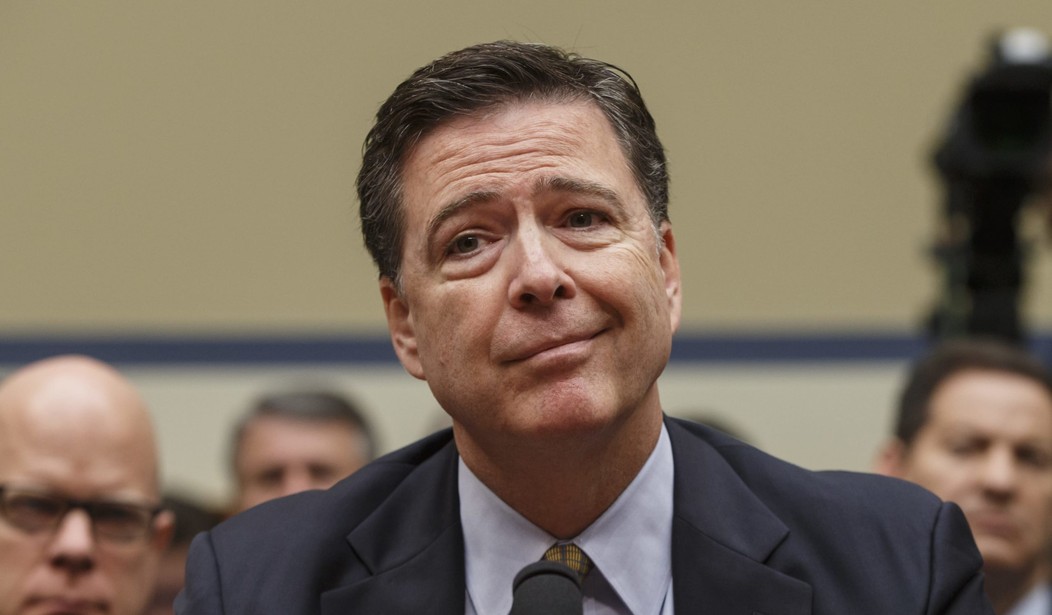It appears that the intelligence community and counter-intelligence community are at odds over discerning motives for the Russians hacking of DNC emails and other efforts at hacking the election.
The CIA offered an assessment that Russia “quite” clearly intended to help Republican Donald Trump defeat Democrat Hillary Clinton and clinch the White House. But the FBI was far more circumspect in its analysis, giving rise to confusion on Capitol Hill.
During a similar Senate Intelligence Committee briefing held the previous week, the CIA’s statements, as reflected in the letter the lawmakers now held in their hands, were “direct and bald and unqualified” about Russia’s intentions to help Trump, according to one of the officials who attended the House briefing.
The FBI official’s remarks to the lawmakers on the House Intelligence Committee were, in comparison, “fuzzy” and “ambiguous,” suggesting to those in the room that the bureau and the agency weren’t on the same page, the official said.
The divergent messages from the CIA and the FBI put a spotlight on the difficulty faced by intelligence and law enforcement officials as they try to draw conclusions about the Kremlin’s motives for hacking Democratic Party emails during the 2016 race. Officials are frequently looking at information that is fragmentary. They also face issues assessing the intentions of a country expert at conducting sophisticated “influence” operations that made it hard — if not impossible — to conclusively detect the Kremlin’s elusive fingerprints.
The competing messages, according to officials in attendance, also reflect cultural differences between the FBI and the CIA. The bureau, true to its law enforcement roots, wants facts and tangible evidence to prove something beyond all reasonable doubt. The CIA is more comfortable drawing inferences from behavior.
“The FBI briefers think in terms of criminal standards — can we prove this in court,” one of the officials said. “The CIA briefers weigh the preponderance of intelligence and then make judgment calls to help policymakers make informed decisions. High confidence for them means ‘we’re pretty damn sure.’ It doesn’t mean they can prove it in court.”
The FBI is not sold on the idea that Russia had a particular aim in its meddling. “There’s no question that [the Russians’] efforts went one way, but it’s not clear that they have a specific goal or mix of related goals,” said one U.S. official.
The murky nature of the assessments is maddening many lawmakers who are demanding answers about the Kremlin’s role in the presidential race. The FBI, under Director James B. Comey, is already under fire for dropping a bombshell letter days before the election on the discovery of new emails potentially related to the Clinton private server investigation. The emails proved irrelevant to the case. On Saturday, outgoing Senate Minority Leader Harry M. Reid (D-Nev.) called on Comey to resign, saying the FBI director deliberately kept quiet evidence about Russia’s motives before the election.
It’s hard to avoid the conclusion that the CIA has a political motivation for being certain about Russian government interference. After all, if the CIA is right, the reason for losing wasn’t that the Democrats fielded the absolute worst candidate for president in their history. Instead, those mean Russians who gave Donald Trump surreptitious support are responsible for the Dems’ debacle.
How much did the American voter really pay attention to what was in those emails? I doubt one voter in 10 could recall anything specific that was in them. By the time of the DNC leak, it was clear that voters had factored in all the corruption and nastiness coming from both candidates, making the release of the emails irrelevant to the outcome.










Join the conversation as a VIP Member